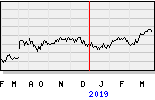
Did you know that the key to solving issues like obesity and anxiety could lie in our gut? Research shows that a plant-based diet can help keep health-boosting gut microbes in shape. We spoke to Simone Pyle, Science & Technology Manager, Gut Microbiome, to find out more.
Gut health could be the key to solving issues ranging from obesity to anxiety.
Research shows that a plant-based diet can support beneficial gut microbes.
Unilever is committed to making plant-based eating easy, accessible and appetising.
It might be as big as our brains and have the potential to protect us from a multitude of illnesses, but our gut microbiome has only got the attention it deserves relatively recently.
As science begins to understand the power of the trillions of micro-organisms that make up the microbiome, one fact is becoming abundantly clear: the healthier and more varied our gut microbes are, the healthier we become, both mentally and physically.
But how do you keep your gut microbiome in shape? Latest research indicates that a plant-based diet might be the key.
We asked Simone Pyle, Unilever’s Science & Technology Manager, Gut Microbiome, about the positive effects of a plant-based diet and how Unilever is helping to make it an easy, appetising option for everyone.
Research has revealed insights into how a plant-based diet can improve the gut microbiome. Can you tell us a little more?
Over half of the microbes in our gut can be altered by what we eat, so the trick is to ‘feed’ the beneficial ones that are critical to maintaining good health. Research has shown that plant-based diets are particularly good at providing the nutrients needed to support a wide diversity of helpful microbes in our gut. The result is that these ‘good’ microbes become influential, improving the microbiome’s composition in a matter of weeks or even days.
How is Unilever delivering microbiome-friendly food for consumers?
With 3.4 billion people using our products every day, Unilever has a real opportunity to help make plant-based foods an affordable, accessible choice for consumers. That’s why we’ve set ourselves a target to sell double the number of products that include meaningful amounts of healthy ingredients such as vegetables and fruits.
Our target for 2025 is for these to make up 54% of our portfolio, and I am happy to report that at the end of 2022 we were well on track to hit that objective, with 48% of our portfolio already offering positive nutrition.
But that’s not all. By 2025 we also aim to have achieved €1.5 billion annual sales from plant-based products in categories that would have traditionally used animal-derived ingredients.
Can a plant-based diet provide adequate nutrition?
Unilever recently published two nutrient diet reviews which jointly analysed over 170 papers comparing the nutritional impact of vegetarian and vegan diets on both adult and child and adolescent health compared to meat-based diets.
The reports showed that in general plant-based diets are higher in fibre, polyunsaturated fatty acids (PUFAs), folate, vitamin C, vitamin E and magnesium than meat-based diets. This is great news as fibre and PUFAs are prebiotics that can feed health-boosting gut microbes.
However, the reviews also showed that in all the dietary categories reviewed, people were still not eating a wide enough variety of foods to get all the nutrients they needed. Based on this research, we should be aiming to eat 30 or more different plant foods a week to keep our gut microbes happy.
Prebiotics, probiotics and postbiotics: what they are and why they matter
Prebiotics: Ingredients like polyunsaturated fats and fibre that feed the healthy microbes in our gut.
Probiotics: Friendly bacteria that help to keep our gut microbiome healthy, often added to yoghurt drinks or supplements.
Postbiotics: Newest member of the biotics family, enabling the presence of microbes and their products to positively impact health.
How is Unilever supporting consumers to hit this nutritional target?
Our innovative Science & Technology research projects are working to find ways to enhance our plant-based portfolio.
Our new Knorr dehydrated vegetable range in Argentina, for example, is made from 100% spinach, onions, bell peppers and carrots. The products take only three minutes to hydrate, can be used in all sorts of cooking and have a long shelf life, making them a great way to avoid waste.
Our Knorr vegetable soups are another example, delivering more than half of the daily amount of the fruit and vegetables recommended by the World Health Organization.
We are also working to encourage plant-based eating through our existing products. For example, according to Eurostat, more than 45% of Dutch consumers don’t eat vegetables every day. To address this, we reformulated our Knorr meal kits and changed our back-of-pack recipes for alternatives that required adding more vegetables and less meat without compromising on taste. Based on consumer data after the launch, we estimate that we have increased Dutch vegetable consumption by around 3 million kg per year[a].
Looking to the future, how do you see microbiome health influencing the nutrition business at Unilever?
Microbiome health is definitely a growing concern for consumers, with 76% recognising the link between good gut health and overall wellness, according to the 2023 DSM Global Health Concerns Study.
As the conversation around gut health grows, I see Unilever continuing to incorporate scientific insights into food innovations that can help make plant-based eating an appetising option for our consumers.
[a]
21 million 3 portion Mealmaker kits. 31% chose the recipe with more vegetables which requires 150gr extra vegetables per person. (Toluna Survey Mealkit Users, n =783).
see & read more on
https://www.unilever.com/news/news-search/2024/behind-the-science-the-gutboosting-power-of-plantbased-diets/?utm_source=SignUp&utm_medium=Email&utm_campaign=NewsSignUp
